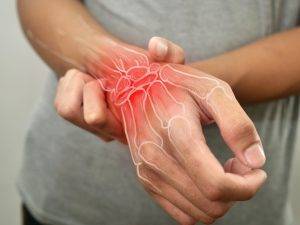A study conducted by Capstone-Intel revealed that many Filipino women lack knowledge about the health risks linked to the beginning of menopause.
Menopause is a universal experience for all women, but educational resources are scarce on this subject. This is especially so in the Philippines. It is a part of the normal ageing process of women, which makes it vital to acknowledge and confront the possible health risks that might emerge during this phase of transition.
A Survey About Menopause
From September 20 to 27, Capstone-Intel surveyed Filipino women about their familiarity with menopause and knowledge of its risks. The findings indicated that over 80% of the survey participants were familiar with the term “menopause”. Nonetheless, there is a small percentage of 3% – 5% expressing uncertainty about their awareness of it.
However, 70% of the respondents did not demonstrate any knowledge about the increased susceptibility to osteoporosis during this life stage, and 88% were not aware of the elevated risk of heart disease associated with menopause. In addition, only 12% of those surveyed believed that there was sufficient awareness and support for menopause-related issues in their community.
The survey also revealed that only 10% of the participants believed that menopause had a negative impact on their overall quality of life.
What is Menopause
Menopause is a natural, biological event that signifies the cessation of menstruation, commencing the day after a woman’s final period. After a full year without menstrual cycles, a woman enters her postmenopausal stage. Menopause usually occurs between the ages of 40-50 years old.
Some signs and symptoms can be experienced for months or years leading to menopause (perimenopause)
- Hot flushes and night sweats manifest as sudden sensations of warmth in the face, neck, and chest. This is typically accompanied by reddening of the skin, perspiration, heart palpitations, and acute physical discomfort that can persist for several minutes.
- Alterations in the frequency and intensity of the menstrual cycle, ultimately leading to the cessation of menstruation, may occur.
- Vaginal dryness, discomfort during sexual intercourse, and issues with urinary incontinence might also be experienced.
- Sleep disturbances, including insomnia, could become a problem.
- Shifts in mood, potentially leading to feelings of depression and/or anxiety.
Risks of Menopause
In this stage, hormonal changes occur that can change the physical, emotional, mental, and social well-being of the women. The hormones called estrogen and progesterone will lower, causing an increase in risks to various illnesses:
- Cardiovascular diseases affecting the heart and blood vessels can be attributed to declining estrogen levels.
- Osteoporosis, a condition characterised by weakened bone5s and an increased susceptibility to fractures, becomes a more significant concern post-menopause.
- Urinary incontinence, often referred to as stress incontinence, is linked to the loss of vaginal and urethral tissue flexibility. This may result in leakage during activities such as coughing, laughing, and lifting. Additionally, it heightens the risk of urinary tract infections.
- Sexual issues may arise, including reduced sexual desire and heightened discomfort or bleeding during sexual intercourse. This is primarily due to vaginal dryness.
- Metabolic changes that occur after menopause can contribute to weight gain.
The benefit of Knowing about Menopause
A woman’s health during the perimenopausal phase is primarily shaped by her prior health and reproductive history, lifestyle choices, and environmental factors. The changes associated with menopause will impact a woman’s health as she grows older. Hence, perimenopausal care is vital in promoting healthy ageing and enhancing the quality of life.
Doctor’s Insights
Dr. Katrin Madriaga Arago, an obstetrics and gynecologic doctor at Oriental Mindoro Southern District Hospital, shared her thoughts about the awareness of Filipinas regarding menopause. She said, “Cessation of menses is the only information generally familiar or known to Filipinas. But educating Filipinas that menopause is an umbrella term when the moment estrogen levels plummet to a point where ovulation and menstruation permanently stop.”
She also added the primary risks that the majority of Filipinas experience, stating, “In addition to common symptoms that are experienced like hot flushes, insomnia, mood changes, and depression, there are risks like Cardiovascular disease, osteoporosis, and UTI that can also happen.”
“We do have a program under DOH which is in cooperation with the Philippine Information Agency about National Information Program on Menopause that is discussed in tandem with ageing, but it can be introduced in programs of reproduction because as levels of the hormone are falling, women still can get pregnant still in need of contraception” she shared.
Finally, Dr Arago imparted some words of encouragement to her fellow Filipino women. She stated, “As a medical doctor, embracing every woman’s journey can help to have a positive attitude towards the phase of menopause and that there are available therapies for symptoms and diseases that pose a risk in that stage.”
More about Menopause
New Insights: OMDs Linked to Early Menopause and Severe VMS
Second Puberty: Essential Insights to Understand About Perimenopause













